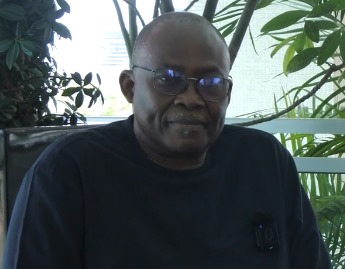Resignation is a personal choice, not a necessity – Spio-Garbrah on Chief Justice suspension – Nsemkeka
Former Minister for Trade and Industry, Dr Ekwow Spio-Garbrah, has weighed in on growing public calls for the resignation of suspended Chief Justice Gertrude Torkornoo, insisting that the decision to step down remains a personal one, not a legal obligation.
Speaking to JoyNews’ Blessed Sogah in Abidjan, Dr Spio-Garbrah emphasised that while the Chief Justice faces legal scrutiny over multiple petitions for her removal, the matter of whether she should resign is ultimately up to her.
“A resignation is an individual decision. One must weigh all the information available at any given time. But the good news, from what I know, is that the Chief Justice—and others in similar high public office—retire on their full salary,” he noted.
He questioned why anyone would insist on remaining in office under intense public and legal pressure if the retirement package ensures financial security.
“So if you’re going to retire on your salary, why worry about staying on? Unless, of course, you want to continue enjoying some privileges, like the ability for your husband and children to travel, which you might not have access to once you leave the office. But the other standard benefits remain. It’s a personal judgment, and I’m not in a position to make that decision for her,” Dr Spio-Garbrah added.
His comments come in the wake of an ongoing legal standoff, where Chief Justice Torkornoo has challenged the constitutionality of a closed-door inquiry into petitions seeking her removal, filing an injunction at the Supreme Court and citing personal hardship and procedural irregularities.
While refusing to speculate on her emotional state, Dr Spio-Garbrah offered a broader reflection on how public officials, like all individuals, respond to adversity.
“It depends on how each individual responds to adversity. We all go through it—we lose loved ones, suffer accidents—and how we deal with it varies. So I won’t comment on what kind of adversity she claims to be facing.”
On the matter of due process, the former minister reiterated the need for the law to take its course, even for the highest judicial officer.
“As Chief Justice, we are implementing the law. She says the law is the law—and so the law is the law—and the law is being applied to her,” he remarked. “The incidents that are being cited, unless she proves that they are incorrect, must stand.”
Responding to concerns about the government changing the location of the disciplinary hearings, Dr Spio-Garbrah was firm in his view that procedural decisions ultimately lie with the state.
“All I’ve heard is that the location where she expected the hearing to take place wasn’t the one the government chose. But ultimately, it is the government that decides where the hearing should be held.”
Dr Spio-Garbrah’s intervention adds nuance to the national discourse—highlighting that while legal processes must proceed, resignation remains a deeply personal matter, influenced by individual judgement, professional considerations, and long-term implications.

